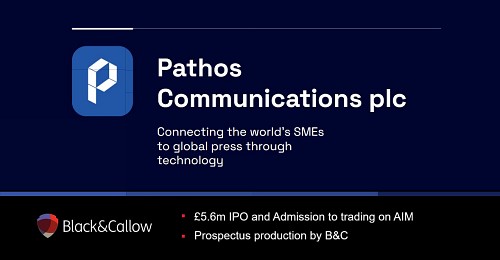
03/06/2025
The Financial Conduct Authority's (FCA) proposed Private Intermittent Securities and Capital Exchange System (PISCES) is unlikely to spell the end of the UK's Alternative Investment Market (AIM), which is currently undergoing reformn, but it does introduce a significant shift in the landscape for growth-stage companies seeking capital. What does this also mean for the humble Prospectus?
What Is PISCES?
PISCES is a forthcoming regulated trading platform designed to facilitate intermittent secondary trading of shares in private companies. Unlike AIM, which serves as a public market for smaller companies to raise new capital, PISCES will not support primary fundraising. Instead, it offers liquidity for existing shareholders - such as employees and early investors - through scheduled trading windows. The platform will operate under a bespoke disclosure regime and will be exempt from certain public market requirements, including the full scope of the Market Abuse Regulation (MAR) and stamp duty, making it more flexible and cost-effective for private firms. Notably, there is no mention of the Prospectus as a primary means of shareholder disclosure in the current proposals for PISCES.
Impact on AIM
AIM has faced challenges in recent years, including declining listings and liquidity issues. Some companies have delisted, citing regulatory burdens and limited investor engagement. PISCES could appeal to firms that prefer to remain private longer while still providing liquidity options for shareholders. This might lead some companies to choose PISCES over AIM, especially if they are not ready for the full demands of a public listing.
However, PISCES is not a direct replacement for AIM. It is intended as a complementary platform that could serve as a stepping stone for companies considering an eventual IPO. By offering a regulated environment for secondary trading, PISCES may help companies build a track record and investor base before transitioning to public markets.
While PISCES introduces an alternative route for private companies to provide shareholder liquidity, it does not eliminate the need for public markets like AIM. AIM continues to offer opportunities for capital raising and broader investor access. The success of both platforms may depend on ongoing regulatory reforms and market adaptations to meet the evolving needs of growth-stage companies and investors.
Death of the Prospectus?
The LSE's Discussion Paper: Shaping the Future of AIM has a particular focus on the Prospectus. Until 16th June it's seeking views on the content of the admission document and in particular whether a simplified admission document should be offered as an alternative, allowing incorporation of information by reference.
It's also seeking views as to whether Reverse Takeovers and second lines of securities should require a Prospectus, and questions whether the class tests - which determine whether disclosure is required for a substantial transaction - for AIM should be raised from the current 10% threshold to be in alignment with the Main Market's 25% threshold.
The outcome of these discussions will have a profound impact on the need for a Prospectus, and begs two questions: in the age of increasing demand for investor protection, transparency and disclosure, what will take its place? And with the decline of AIM and the potential rise of PISCES, will the Prospectus be assigned to history?




